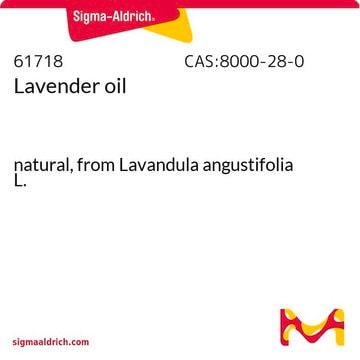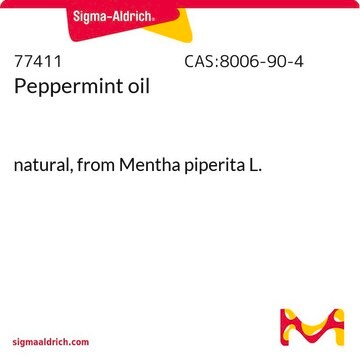W299200
Rosemary oil
FG
Synonym(s):
Rosmarinus officinalis
Select a Size
Select a Size
About This Item
Recommended Products
biological source
Rosemarinus officinalis L.
Quality Level
grade
FG
Halal
Kosher
reg. compliance
EU Regulation 1334/2008 & 872/2012
FDA 21 CFR 182.20
optical activity
[α]20/D +1.2°, neat
refractive index
n20/D 1.467
bp
176 °C
density
0.908 g/mL at 25 °C
application(s)
flavors and fragrances
Documentation
see Safety & Documentation for available documents
Looking for similar products? Visit Product Comparison Guide
Signal Word
Warning
Hazard Statements
Precautionary Statements
Hazard Classifications
Eye Irrit. 2 - Flam. Liq. 3 - Skin Irrit. 2 - STOT SE 3
Target Organs
Respiratory system
Storage Class Code
3 - Flammable liquids
WGK
WGK 2
Flash Point(F)
120.2 °F - closed cup
Flash Point(C)
49 °C - closed cup
Personal Protective Equipment
Choose from one of the most recent versions:
Already Own This Product?
Find documentation for the products that you have recently purchased in the Document Library.
Our team of scientists has experience in all areas of research including Life Science, Material Science, Chemical Synthesis, Chromatography, Analytical and many others.
Contact Technical Service





